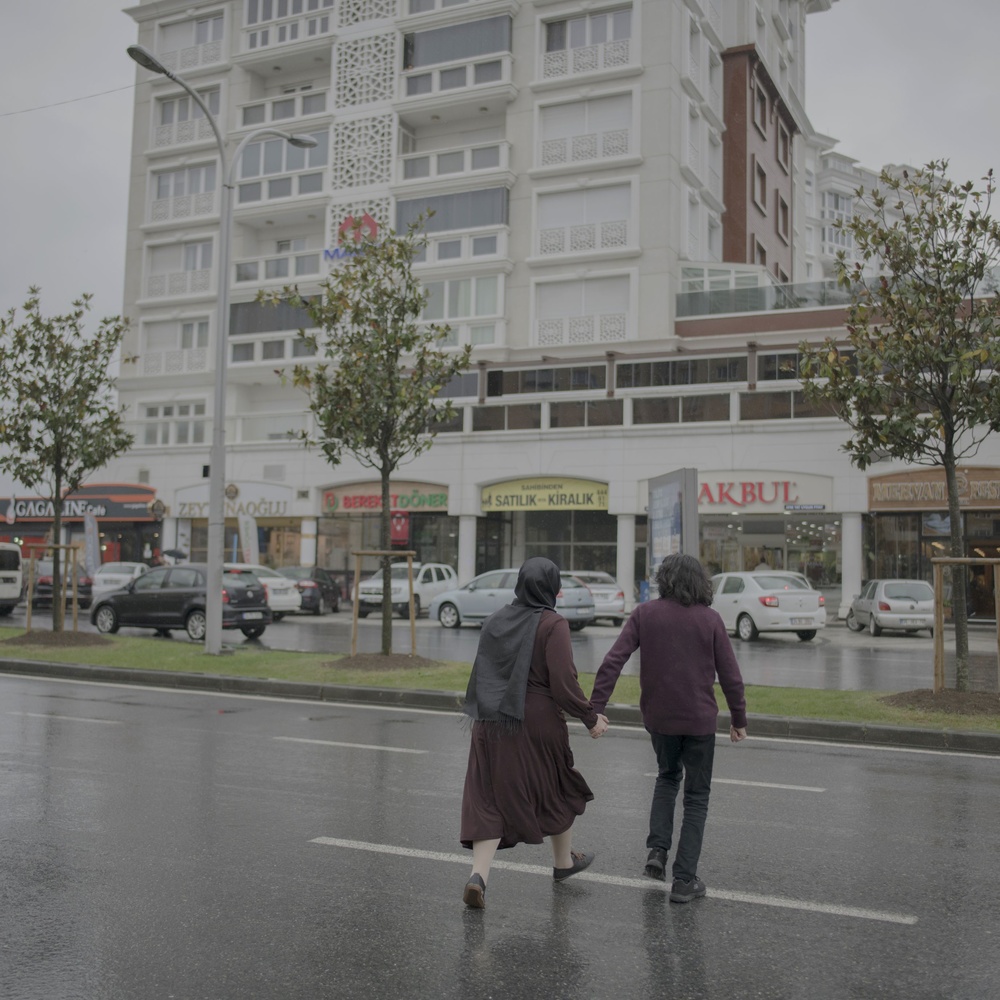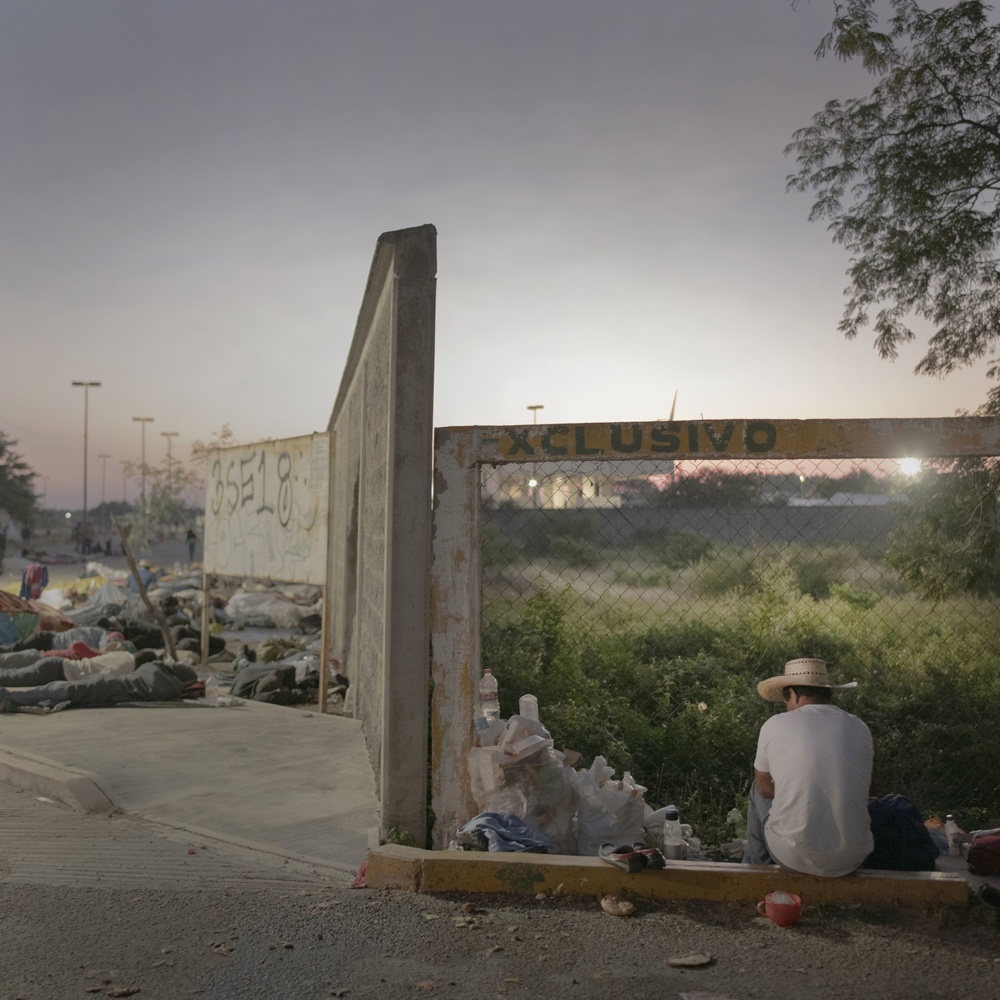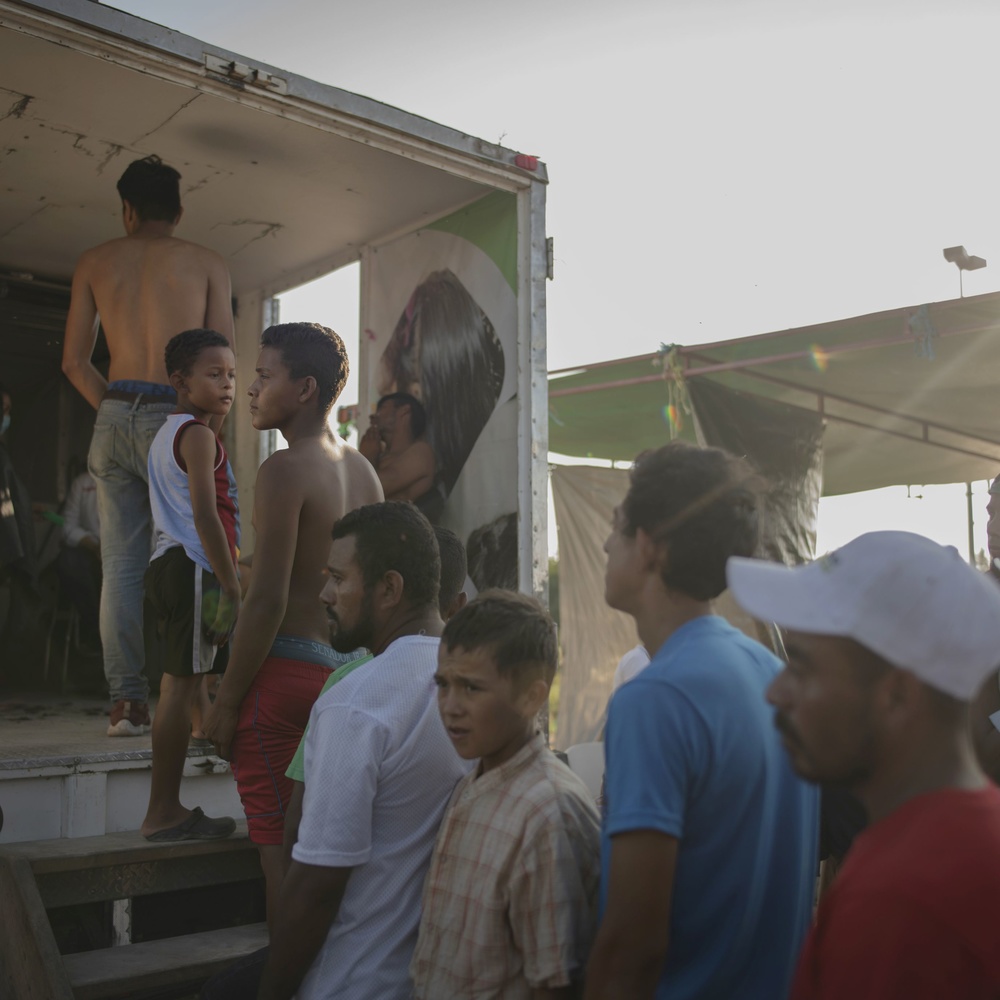One photographer recently travelled to both Turkey and Mexico to document the global refugee crisis in pictures, a series that went on to earn him a win at the World Press Photo Awards. We spoke with the man himself to uncover more details about the inspiring love stories of couples and families who have been forced to flee their native countries in search of a better life.
Pieter Ten Hoopen is a photographer and photojournalist based in Stockholm, Sweden, whose projects focus largely on humanitarian crises and war. For this particular series, entitled "Love Stories," Hoopen says he felt an obligation to utilize his photography in order to raise awareness of the issue. He set out with the intention of shining a spotlight on the refugee love stories that provide strength and hope for those trying to build a better life for themselves, choosing to steer clear of sensationalizing the issue.

Love is one of the most important elements of human existence; it provides positivity and hope during our darkest times. My images capture couples and families enduring the most testing circumstances and show how love has driven them forward.
All of Hoopen’s images for the series were shot in either Turkey or Mexico. As to why he landed on these countries for the basis of his series, both are two of the main hubs for refugees fleeing their home territory. Istanbul is populated with those who have fled war-torn Syria, while the Migrant Caravan, a group of migrants and refugees fleeing Central and South America, has a large community in Mexico, most of whom are heading for the US-Mexico border. Hoopen is keen to note that although many are labeled as migrants by the media, a large proportion are actually refugees, those who have fled their homes most likely due to some kind of violence or a personal issue, such as their sexual orientation.
Turkey and Mexico simply mark the beginning of this project, and I’ll be looking to document other nations also facing this global crisis.


Of course, a project of this nature isn’t for the faint-hearted. I was intrigued to know if Hoopen had any reservations before he embarked on the journey. “Handling the situation sensitively was our number one priority,” he says, adding that he was conscious of protecting the people he was to be working with. But, naturally, the financial aspect was always going to be a concern too. Aside from the trip itself, he’d planned a huge exhibition and wrap film. Luckily for him, Nikon ended up partnering on the project, providing a grant that he utilized during the project’s development stages, something Hoopen says he is extremely grateful for.
Next, I wanted to talk about the ethics of his work. How did many of the refugees he encountered react to having their photograph taken at such a traumatizing chapter of their lives? Hoopen says he was lucky enough to encounter couples and families who “understood the story [he] wanted to tell,” and on that basis, were happy to talk about their feelings and the events they’d lived through, so much so that Hoopen reveals he has a “wealth” of material despite not yet being halfway through the project. As to whether he felt anything was off limits, he added: “The people we have met have been incredibly open and generous with what they have shared. Let’s see what the future holds, but right now, I’m very happy with how things are progressing and how people have been so willing to work with me.”

Hoopen is armed with a Nikon D850, a piece of gear whose strength lies in its ability to capture fleeting moments in high quality. Favouring a 6x6 ratio for his images, he says the camera setting to shoot exactly that saves him having to crop his images at a later stage. Its Advanced Scene Recognition helps to capture emotions in great detail, which Hoopen attributes to helping visualize “the harsh realities of refugee life.” The AF-S NIKKOR 28mm f/1.4E ED is his glass of choice. Being a wide-angle lens, it allows for lots of control in any lighting situation, something that plays into Hoopen’s shooting style, given that he doesn’t like using flash.

Aside from his images, Hoopen has also been shooting video. Armed with the Z 7, he says it was a new experience for him.
[It can be tiring] carrying a lot of equipment. I found myself walking, running, and jumping, but the lightweight Z 7 didn’t weigh me down, and its Vibration Reduction meant it was easy to keep my 4K video capture steady. The similarity of the camera’s ergonomics to Nikon’s DSLRs also meant I could pick up how all the settings worked naturally and quickly.

"Love Stories" is in good company alongside Hoopen’s other documentary work, although by his own admission, this is his most emotional and "slow" collection when compared to series before it. This time, the intention was to focus on the intimate connections between his subjects, in favor of showcasing the more shocking stories that would normally be covered in the media.
As we’re wrapping up our interview, there was one question I couldn’t leave without an answer to: What do you hope people take away from this series? With any project of this magnitude, there is surely an end goal in mind for those committing their lives to documenting it. Hoopen’s answer in short? Compassion. He hopes that these pictures will help audiences to understand the refugee plight and that people will “slow down and reflect on what it means to flee your home because you have no other alternative to survive.” Particularly, Hoopen wants to humanize those who are often dangerously referred to as numbers or mere statistics.

“We should always focus on the humanitarian aspect of a crisis, and I hope ‘Love Stories’ can play a role in this,” he concludes.
Pieter Ten Hoopen is a photographer and filmmaker based in Sweden. You can see more of his work at his website, Facebook, Twitter, and Instagram.
All images Pieter Ten Hoopen, and used with permission.







Sponsored?
What do you hope people take away from this series? What only photography can do: put a face on a story and, hopefully, generate empathy.
Tell the governments of both of these countries to stop being greedy and corrupt and provide for their people, I am all in favor of sending aid and assistance. Taking them into my home is not going to help, it will over stress an already overloaded medical system. I am tired of the USA being the police and baby sitter for the rest of the world. Mexico is drowning in oil, tell them to give us one barrel of oil for each illegal alien, better yet tell Mexico to fix it's broken government and make their country a place where people would want to live.
Amen brother. I absolutely agree
The US put itself in that role, it took it on for political power reasons. BTW, the US isn't the only country on earth that has a refugee crisis. And your comments have nothing to do with the photography.